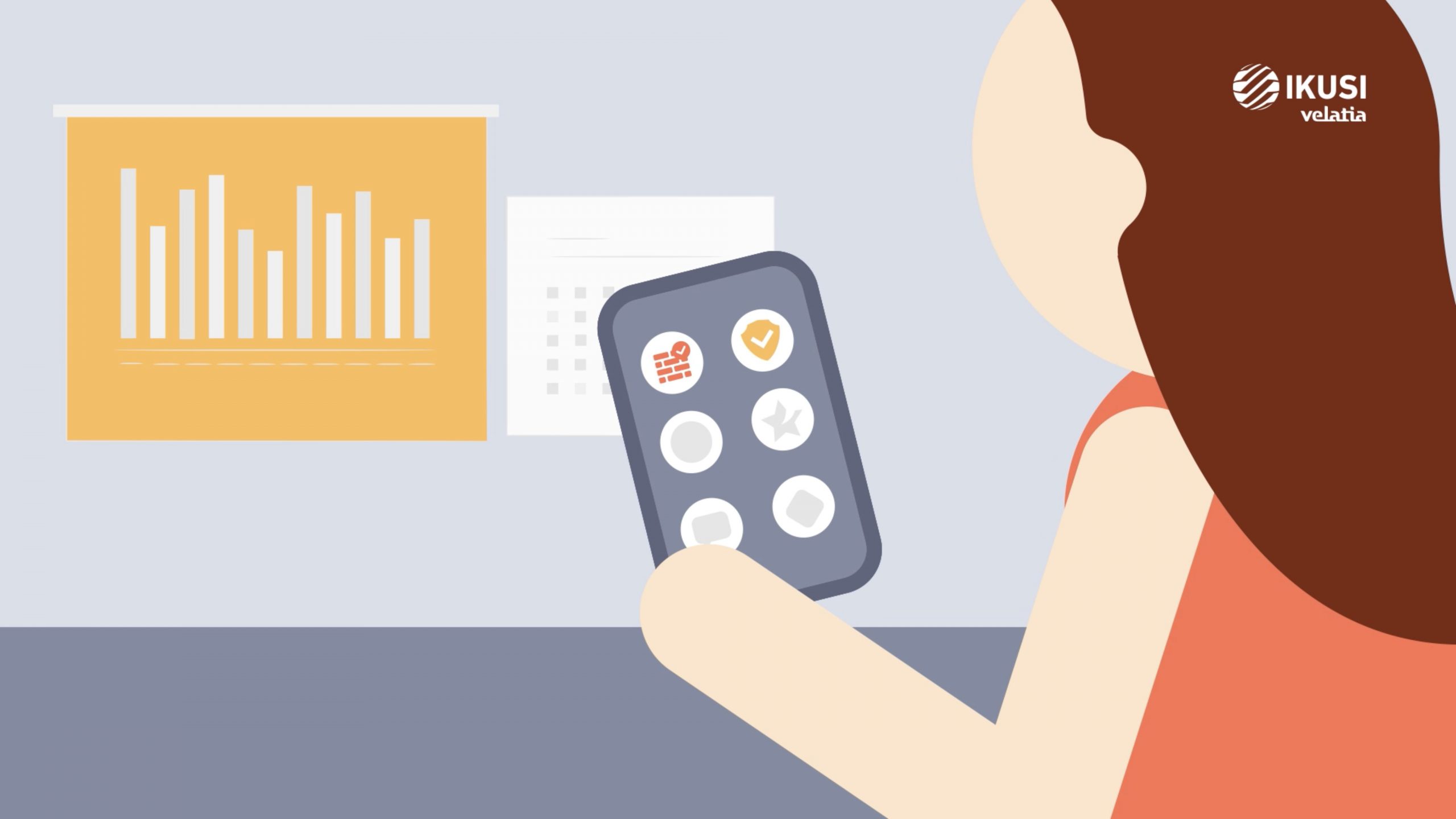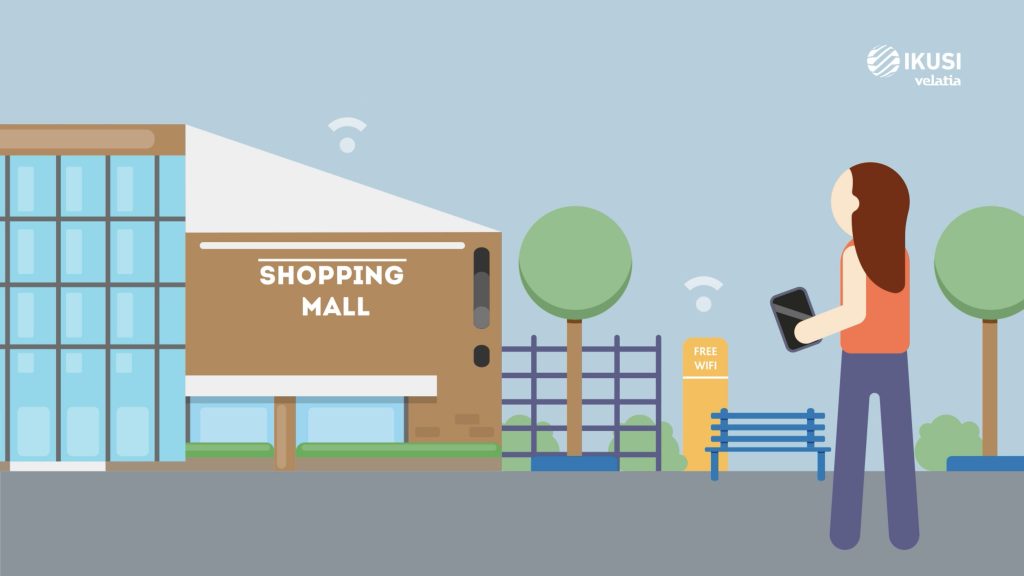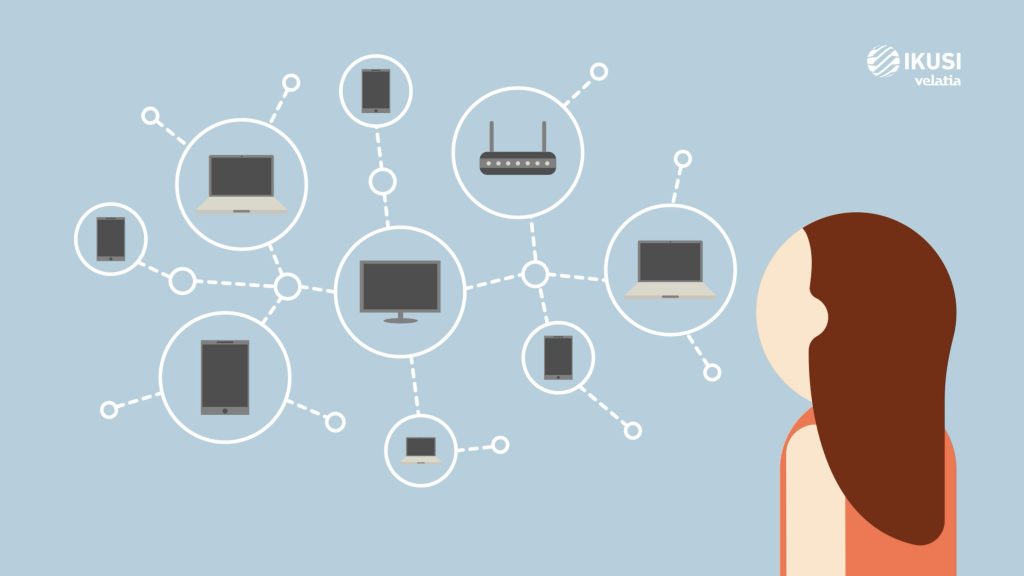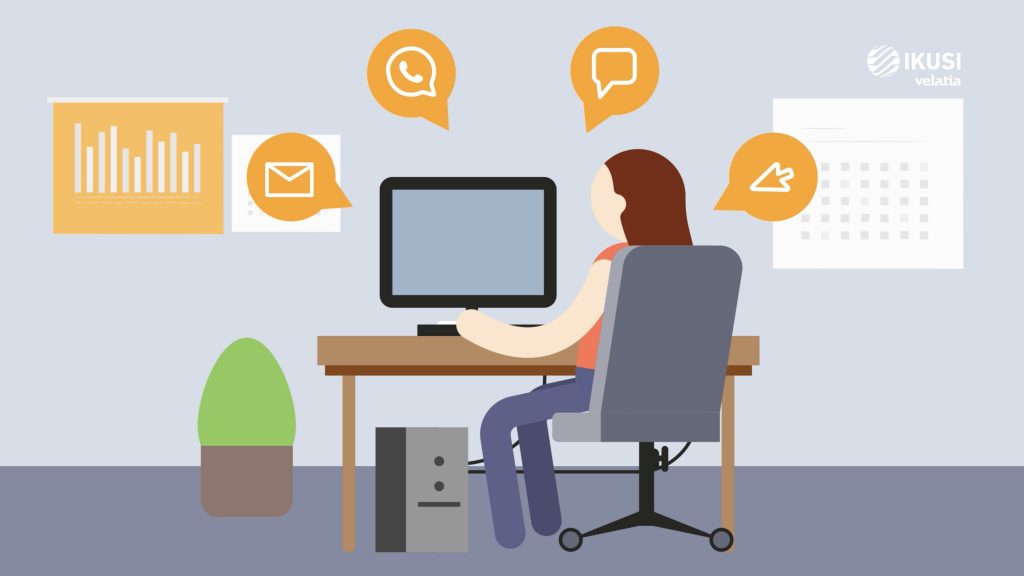
A hyper-connected and digitised world is a great technological advantage that can also become a threat to our cybersecurity, but how do we protect our network from cyberattacks?
It is undeniable. We live at a time when each and every one of us generates huge amounts of digital data and information of which we are often unaware. In recent decades, thanks to a great advance in technology, the Internet has entered our lives and has become a fundamental part of our daily lives. It is very difficult for us to imagine a world without mobile phones with access to instant messaging applications, e-mail, online banking, insurance management, information consumption and entertainment. Not to mention our work, which in many cases is closely related to the use of the network. There are endless possibilities within our reach and, on unpleasant occasions, also within the reach of cybercriminals. And, as was said in a certain popular comic from the 1990s, “with great power comes great responsibility”. That is why today we want to focus on the most responsible part of this digital world, that of protecting our network against possible cyberattacks. How can we strengthen our cybersecurity? Don’t miss these tips to detect vulnerabilities and avoid these cyberattacks.
Let’s start with the basics: common sense. The popular saying goes that this is usually the least common of the senses, and today we are not going to contradict hundreds of years of wisdom. The rush we live in and the amount of digital operations we do make us make huge mistakes that can turn us into one of the 350,000 users who suffer a cyberattacks every day. That is why, above all, we must be alert and avoid falling into the many traps that lurk in this jungle called the Internet. Thus, we must be sure not to open e-mails or download their attachments when they are of dubious origin; quarantine SMS with links to bank managers or services of all kinds whose URL and text are suspicious and, above all, do not enter sensitive data such as passwords on any website without first checking that it corresponds to the service we really want to access. Remember that 95% of cybersecurity failures in companies are concentrated in this type of oversight, which, although seemingly innocent, can leave the doors wide open to sensitive information. So keep an eye out.
Now that we have alerted you and got your attention, it is time to follow a series of cyber-tips that will undoubtedly help us a lot to protect our network. Let’s get on with it.
Accessing a public network? Use a VPN
You have probably heard of the famous VPNs which, although they are not a panacea, can be very useful. Virtual Private Networks allow us to establish a protected connection when connecting to a public network such as Wi-Fi in a shopping centre; encrypting Internet traffic and disguising your identity. In this way, we put obstacles in the way of those who love other people’s property.

Always check that the websites you access have HTTPS certificates
Nowadays, a website without HTTPS certificates (an internationally valid security protocol) is the closest thing to an uninsured vehicle, so stay away from those without the padlock icon on the left side of the URL.
Use alphanumeric passwords and make use of two-factor authentication
Your name followed by a “complex” series of numbers such as 1234 is not exactly a guarantee of security when it comes to setting a password and protecting your network. Yes, we know; it’s a bit of a pain to store all that information in our heads; but it’s more than advisable to use alphanumeric passwords of a certain complexity, including special characters, and to take advantage of the benefits of double authentication to verify that you are always the one doing the transactions in your mobile and computer apps. This last point will ring a bell if you are an online banking user. Think that if it serves to protect your money, it serves to protect your information.
Don’t leave the router with the default password and change it from time to time before it becomes a collector’s item
Routers are the great forgotten “hardware” of our local networks. They arrive, they work -when they don’t just happen to fail- and we forget about them until it’s time to renew the contract with the telephone operator. The reality is that we can make the most of them to protect our network with a simple change of password after installation. In addition, and without wanting you to enter into a maelstrom of senseless consumerism, we do advise you -if you own the device- to renew it from time to time.
Try to use WPA2 encrypted passwords for your local network
Following on from our friend the router, we should rely on the installation of WPA2 or higher wireless security protocols. The purpose is to prevent unwanted access to the wireless network and to strengthen the encryption of the data we send out. You can check your security encryption by taking a look at your device’s Wi-Fi network status as well as the router’s wireless log, which will indicate the type of connection.
Saying goodbye to torrents, the key to protecting our network from cyberattacks
Despite the number of content platforms out there, with increasingly competitive offerings and prices, you are still downloading tons of torrents illegally. Not to mention the fact that this is a crime against intellectual property, something that in itself should keep us away from this type of practice, downloading torrents puts our cybersecurity at real risk. To put it in plain language, downloading torrents is the equivalent of opening the doors of our house wide open; which is what happens when we connect to a P2P network where, among other things, we share files and, incidentally, our public IP. Furthermore, by downloading files through this method, we are trusting in the goodness of the person who makes them available, overlooking the fact that the content may be malicious. It is high time to stop using this method.

Update your operating system and apps or surrender to cyberattacks
“Later”, “some other time”… Who hasn’t postponed an update of their operating system, software or smartphone app? Well, you are making it easier for cybercriminals to exploit vulnerabilities in older versions of these apps to gain access to your data. Bear in mind that numerous teams of experts are on the lookout, day in and day out, to check the reliability and robustness of the applications and programmes you use. If you are offered an update, it is to prevent a possible security breach, so try to keep everything up to date. It will certainly help you a lot.
Don’t have antivirus or firewalls? What are you waiting for?
Antivirus and firewalls are our virtual lifelines. We must rely on them to prevent a large part of the threats from staying in the barrier and not entering our system; although we must be aware that there is no such thing as 100% security. Despite this, their usefulness is indisputable; so try to have them active or you will have problems with cyberattacks.
Yes, vulnerability scanning software works to protect our network
From time to time it is good to check your mobile phone with the tracking application that is included in the operating system. Believe it or not, and although these default apps are not the best, they tend to detect bugs that bother our data; so remember to pass the magnifying glass from time to time and then destroy all those dead files that remain in our storage.

Review your privacy and the access you grant to the apps you install
Maybe that game you’re hooked on doesn’t need access to your camera to keep you accumulating gold coins to improve your skills, have you ever thought about it? We often install apps without even thinking about what permissions we give them access to and, in too many cases, we can get unpleasant surprises. Go into the settings of the apps you have installed and, while you’re at it, take the opportunity to delete the ones you don’t use or update, and check the permissions to leave them at the minimum level you consider.
Use original software, don’t be a pirate!
We end our tips for protecting our network with a point that should not even be mentioned when we talk about cybersecurity, because it is another of those totems of common sense. But, as we mentioned at the beginning of this article, common sense often disappears and we get carried away by the sense of opportunity. The thing is that many of the “free” programmes that are available can end up being tremendously expensive thanks to all the “extras” they have. And we are not referring to extra options for the user, but rather to hidden developments that will be responsible for obtaining private information to use it for a purpose that we do not know about. Is that worth it to your? Clearly not.
Still have doubts? Don’t miss this video where we summarise these and other tips to protect our network from cyberattacks in a quick, graphic and simple way.


